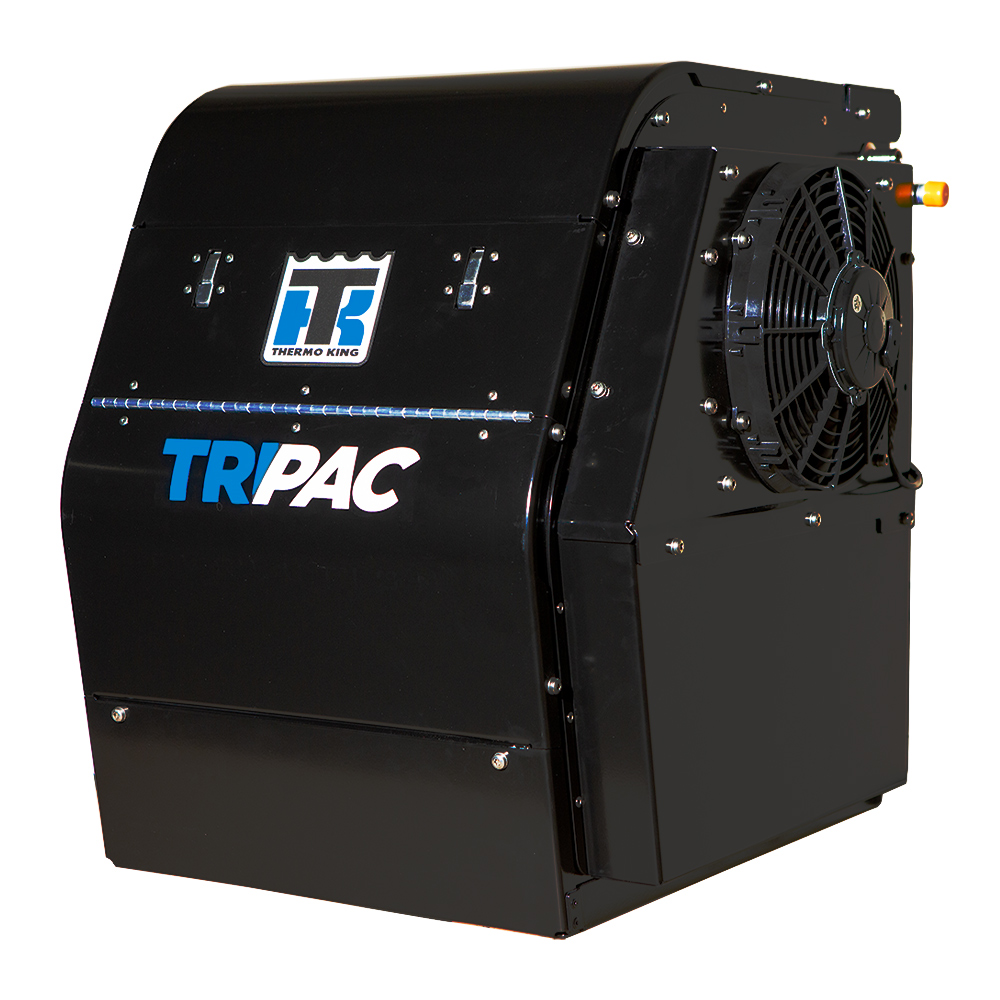Auxiliary Power Units offer superior driver comfort while ensuring operational efficiency, cost savings and sustainable best practices
Cold chain logistics is all about moving freight, and commercial trucks in Canada move 90% of all freight. Ensuring driver comfort when moving freight is a top priority for many long haul trucking businesses and managing vehicle idling during driver downtime is of equal importance. Equipping semi trucks with auxiliary power units (APUs) has had a profound impact on trucking fleets and owner operators and the long term benefits strengthen the return on investment.
Driver Comfort and Retention

Driving long haul is a demanding job that requires concentration. Without the proper rest and relaxation, drivers may become fatigued and less focused on the road. Truck auxiliary power units (APUs) provide drivers with a comfortable environment during rest breaks, allowing them to recharge and relax before hitting the road again. With unlimited heating and cooling capabilities and remote power addons that can run laptops, coffee machines and heat food in a microwave, drivers can have all the comforts of home without idling their truck engine. Studies have also shown how APUs play an important role in promoting driver well-being, productivity, and safety on long haul trips. Drivers are also more likely to stay with a company that prioritizes their well-being while also reducing environmental impact. With a direct link to higher driver retention rates and increased employee job satisfaction, APUs can improve the overall company culture as well as the bottom line.
Engine Maintenance
Trucking fleets and owner operators that invest in APUs see the value in reduced idling time and also realize the potential cost savings in maintenance costs over the long term. Less truck engine idling during breaks and downtime means less wear and tear on the engine components and a longer duration between scheduled vehicle maintenance visits. When you factor in the increased cost for truck parts and fragmented availability from various equipment manufacturers, vehicle service can be very taxing to fleet operators. Downtime is critical and APU’s help ensure that trucking fleets spend more time on the road making money, and less time and expense in the shop.
Fuel Consumption

It is no surprise that the high fuel costs of today put an extra strain on the cold chain. Investing in APUs can help alleviate some of that strain by reducing fuel consumption and improving overall operational efficiency. APUs like Thermo King’s diesel TriPac® APU consume approximately 75 percent less fuel per hour than idling a regular truck engine. Over the course of a year, that equates to a potential saving of almost 9,500 litres of fuel per year, and almost 38,000 litres of fuel over the span of semi truck ownership. Like its diesel counterpart, Thermoking’s electric APUs offer the same benefits of driver comfort, idle reduction and maximum uptime without the need for fuel. Either way, trucking companies are better able to comply with strict emissions regulations while boosting their competitiveness and reputation in the industry.
Sustainable Performance
Trucking fleets are incorporating APUs into their corporate sustainability efforts to reduce their carbon footprint and comply with environmental regulations. By using APUs on long-haul semi trucks, fuel consumption is decreased and greenhouse gas emissions are directly reduced which adheres to the Environmental Protection Agency (EPA) and California Air Resources Board (CARB) regulations. Some APUs like the Thermo King’s 3rd generation TriPac APU come standard with a passive aftertreatment device (ATD) that further reduces emissions, offering even better compliance. By incorporating solar panels with semi truck APUs, fleet operators further decrease their reliance on fossil fuels and lower their emissions when powering various during driver breaks and downtime.

Competitive Advantage
Telematics takes APU technology to new levels in the marketplace and Thermoking’s latest 3rd Generation Tripac does this by optimizing the efficiency and uptime of the auxiliary power unit. Using TracKing® telematics technology, fleet operators can accurately predict and communicate the APUs usage and environmental impact to customers, drivers, insurance providers, and shareholders. APU performance is further enhanced with immediate alerts and maintenance notifications, while providing real-time visibility of runtime hours, cabin temperatures and even fuel tax reporting. Fleet operators that implement APU technology also increase the resale value of their truck assets when it comes time to upgrade their transport fleet equipment.
The long-term benefits of investing in APUs far outweigh the initial costs, making it a smart choice for trucking fleets and owner operators who are looking to attract and retain the best driver workforce while improving their bottom line. Future advancements in APU technology will further improve operational efficiency and performance, and enhance the driver experience while reducing the environmental impact.
